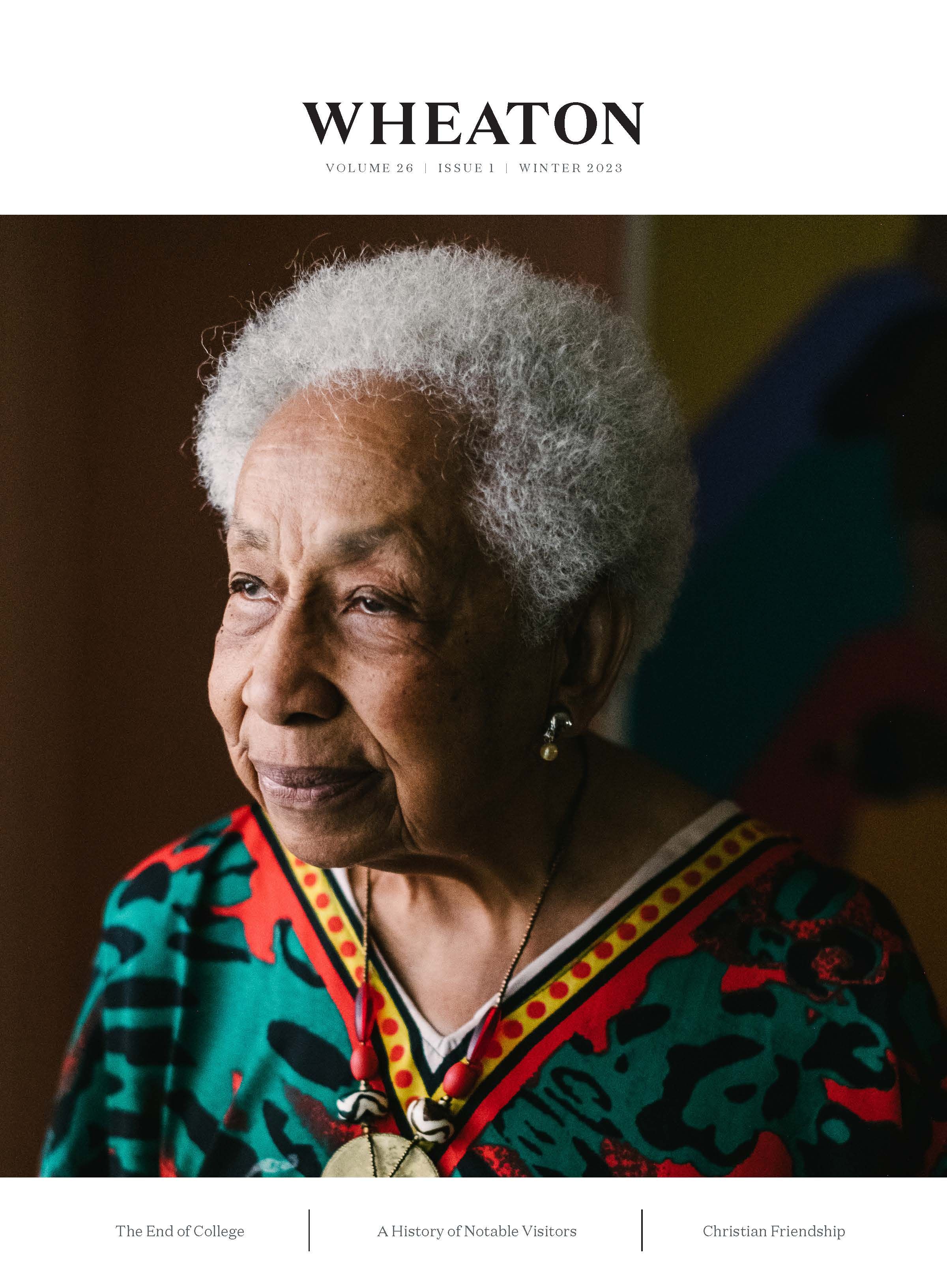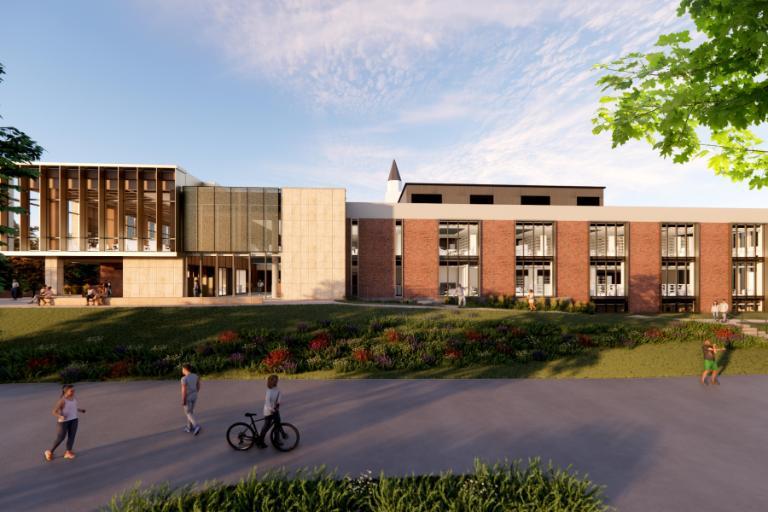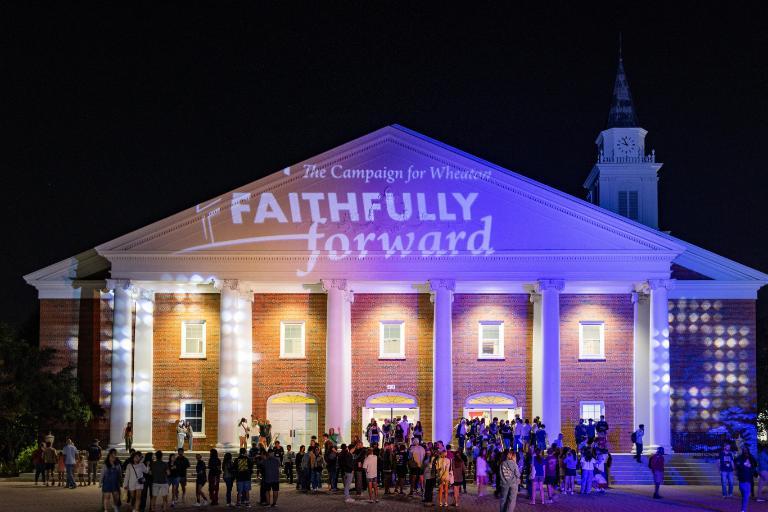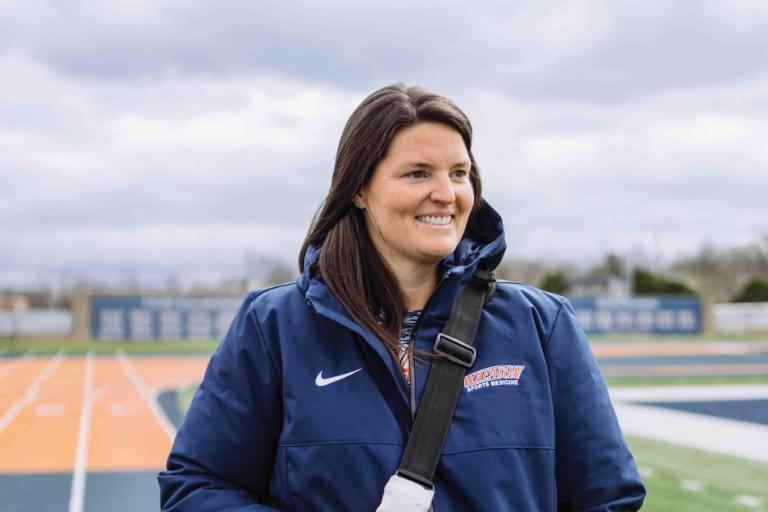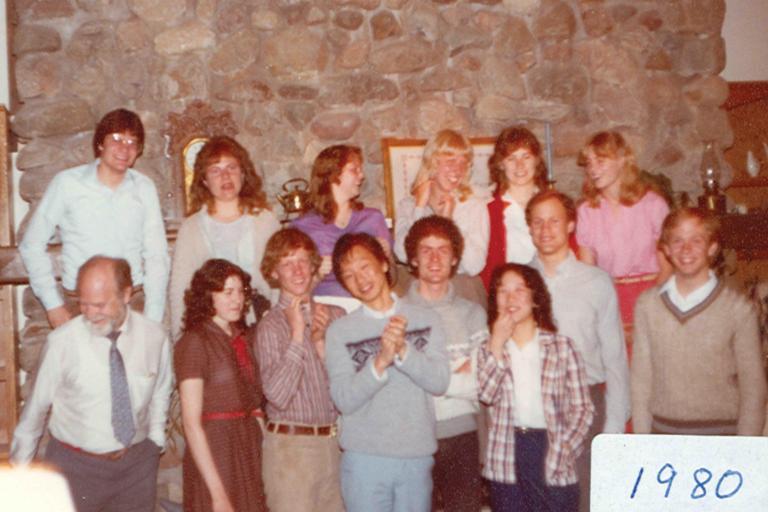Celebrating 10 Years of Marriage and Family Therapy at Wheaton
Since enrolling its first cohort in the fall of 2012, the COAMFTE-accredited M.A. in Marriage and Family Therapy program at the Wheaton College Graduate School continues to equip its students to connect with clients from all walks of life around the world for Christ and his kingdom.
Words: Eliana Chow ’21
Photos: Courtesy of Dr. David Van Dyke
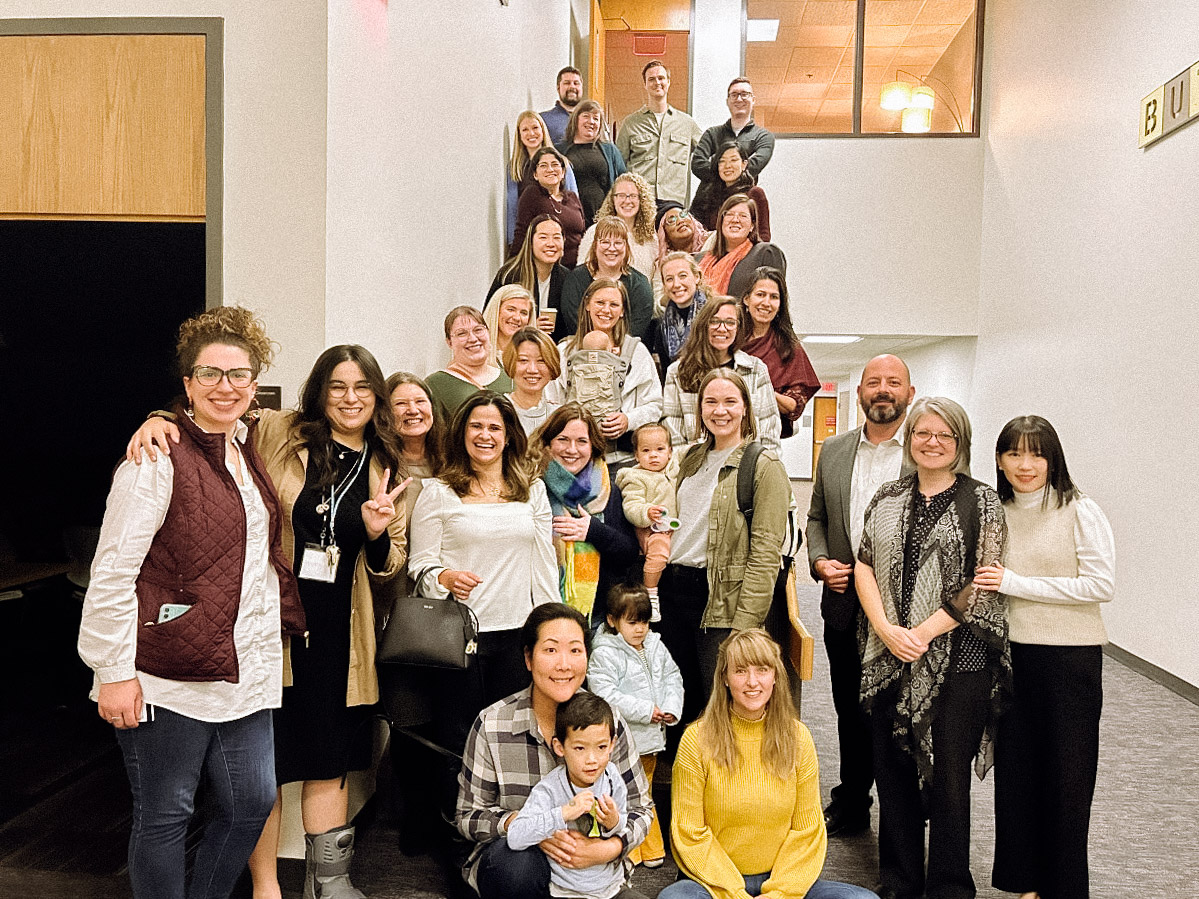
MFT alumni (2014-2021) gather at the 2022 Family Systems Conference to celebrate the program’s 10th anniversary.
It all started with Dr. Frances Jayne White HON. For 13 years of her career, she partnered with Africa Inland Mission and the National University of Zaire (now Congo) to train Christian student leaders throughout central Africa. During that time, she identified a pressing need for mental health training among Christians, watching a widening gap between community needs and Christians’ ability to meet those needs with empathy and wisdom.
When Dr. White returned to the U.S. in the 1970s, Dr. Wilbert Norton ’36, academic dean of the Wheaton College Graduate School at the time, invited her to teach a handful of counseling courses to missionaries-in-training on campus. Dr. White was passionate about relational therapy, in contrast to the often overly individualistic focus of existing mental health clinics and training programs in the United States. With her global perspective, drawing from many cultures that emphasize communal or collectivist living, she wanted to design programs that approached a person’s life more holistically. Under the leadership of then-Provost Dr. Stan Jones HON, Dr. White pushed to establish an M.A. in counseling psychology in the graduate school, which welcomed its first cohort of students in August 1977.
Those were the first glimmers of integrating relational therapy at Wheaton. Since then, the master’s program has served the College, professional counseling community, and local churches in meaningful and healing ways. In the late 2000s, as the mental health field continued to develop in the U.S., Wheaton College leadership reexamined the overarching impact of the master’s program. Administrators and graduate faculty noticed that graduates from the M.A. were having challenges obtaining terminal licensing degrees (either as a licensed marriage and family therapist or a licensed professional counselor). The psychology department then began thinking seriously about how to make the program offerings more conducive and helpful for graduates seeking to enter professions as therapists.
In 2011, Professor of Psychology Dr. Terri Watson reached out to two consultants from the Licensing Board for Marriage and Family Therapists in Illinois: Centennial Counseling Center’s Dr. David Norton and Illinois School of Professional Psychology’s Dr. David Van Dyke ’91. The two conducted a comprehensive review of Wheaton’s curriculum. They provided guidelines and a rough plan to develop a marriage and family therapy program that would then work toward accreditation and lead graduates toward licensure.
At the same time, Dr. Van Dyke was taking a good hard look at his own career prospects. He had spent the last 12 years on faculty at National Louis University in downtown Chicago, teaching in a clinical psychology doctoral program accredited by the American Psychological Association. He was the only evangelical Christian in a faculty of 35 and had enjoyed the rigorous discussions about faith, psychology, and how that applies to clinical practice. However, he was also interested in training other Christian mental health professionals to do the same. “I was excited to start thinking about how to multiply the Christian representation within marriage and family therapy,” he said. “How could we train more Christian therapists and Christian scholars in the field? How could I contribute to that development myself rather than just being on the front lines?”
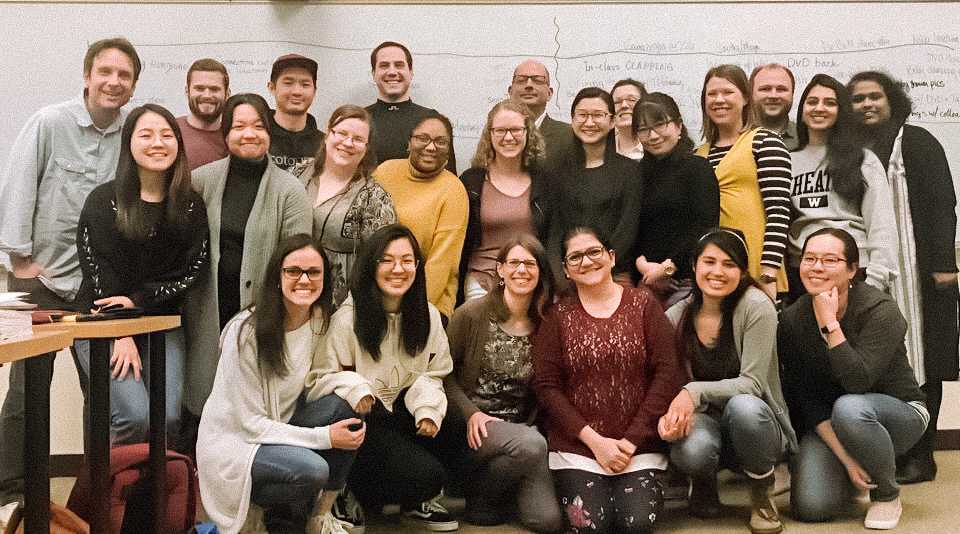
Integration of Christianity and Systems Theory class photo
So it was that Dr. Van Dyke accepted the role of Program Director for the newly approved Marriage and Family Therapy (MFT) master’s program at Wheaton, moving his commute to the suburbs to establish the new program in Christian theology-informed marriage and family therapy education. In the fall of 2012, the MFT program enrolled a full, 18-person cohort, each of whom played key roles in helping faculty develop the program, from pointing out gaps in the curriculum to setting the stage for relationship-building between students, faculty, staff, clients, and partner organizations.
From the outset, Dr. Van Dyke and fellow MFT faculty established four primary goals to direct the program’s growth trajectory: attain accreditation, launch a family systems conference, build an on-campus counseling clinic, and connect Wheaton’s MFT students and graduates with a global network.
Over the next 10 years, the program accomplished each of these goals, even exceeding their expectations regarding impact. In 2016, the MFT program was accredited by the Commission on Accreditation for Marriage and Family Therapy Education, and in the same year, they organized the first annual Family Systems Conference. To date, the conference remains an edifying and informative professional gathering for pastors, clinicians, educators, and other leaders in ministry and industry. Each conference is centered around family systems theory, a relational and context-oriented way of thinking about people’s relationship with God, who they are as people, the reality of sin and brokenness, and healing. This model differs from the individualized focus common to clinical psychology and mental health counseling.
“Our emphasis is on the relational aspect of God—God as a triune God in and of himself relationally, and, probably more powerfully, God who pursues relationship with us even when we can’t or don’t respond,” said Dr. Van Dyke. “If you think about the gospel story, starting in Genesis, we’re made for intimacy: intimacy with God, intimacy with each other. We violate those relationships. As Dietrich Bonhoeffer in his creation and fall sermons suggests, we want to become our own God and take the center of the garden rather than having God at the center. God has every right to be distant or wipe us out and try again. But he doesn’t. What does that mean for us as clinicians entering the therapy room and walking with families? How do we establish a relationship with them and give them an experience of healing that is very much reflective of the gospel?”
These are questions that students wrestle with in the classroom and through their supervised clinical internships. In October 2020, the MFT program opened the doors of the Center for Relational and Family Health, directed by Dr. Wendy Smith. Located just west of Billy Graham Hall, screened by a copse of trees and chipmunk-friendly underbrush, the center has become a key avenue for students to take their learning beyond the four walls of academia and into the community. CRFH services are also available to Wheaton faculty, staff, and students.
“We have this beautiful development and process where we train and supervise our students systemically to think relationally, and then they’re able to go into community agencies, hospitals, private practices, and other settings where most people wouldn’t be able to receive therapy because of the cost,” explained Dr. Van Dyke. “They’re serving the underserved in our neighborhoods. I feel really excited that we can provide good training while contributing to the overarching mission of the College.”
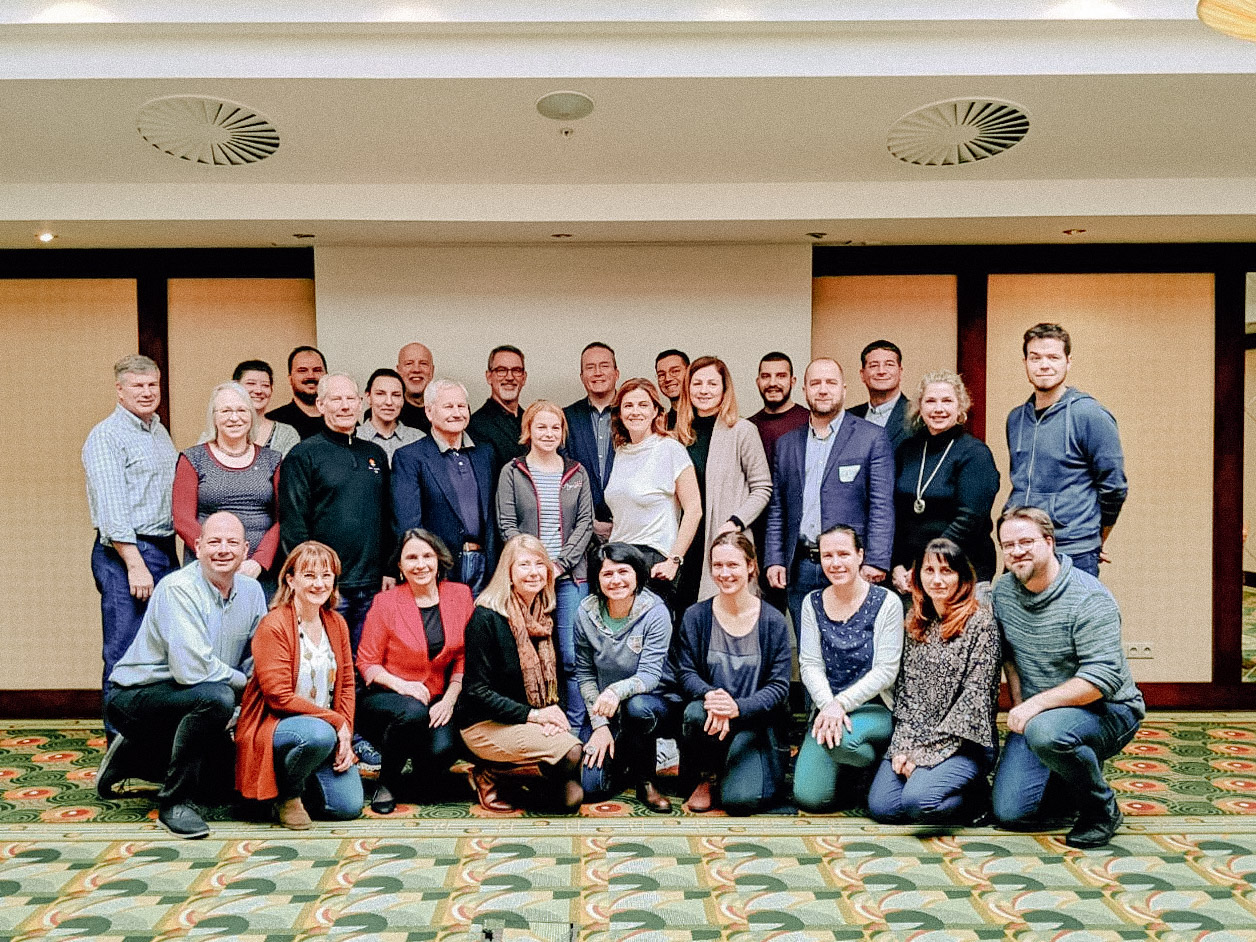
Dr. David Van Dyke and fellow MFT professionals gathered at the March 2020 Central and Eastern European Mental Health Advisory Conference.
Ever since its conception, the Wheaton MFT program has been defined by several hallmark priorities. First and foremost, the curriculum is founded on the College’s core beliefs about the Christian liberal arts, integrating subject areas like theology and epistemology alongside some of the more scientific and theoretical areas of clinical training and supervision. The program also emphasizes the personal and spiritual growth of each student, believing that to engage with clients well, the therapist (or therapist-in-training) needs to be grounded in their understanding of their own context.
“Our program is academically rigorous, and there are a lot of clinical hours the students have to put in,” said Dr. Van Dyke. “But all the reading, writing, and critical thinking is really about their personal development, their walk with God, and their walk with one another.”
With the small cohort model, students walk through the two-year program with the same 18 peers, building deep professional and personal relationships with people from around the world. International students make up 30% of the program each year, emphasizing that fourth and final goal faculty have worked toward throughout the past decade.
“It’s actually easier to think about systems theory outside of the U.S.,” said Dr. Van Dyke. “In the States, we have more of an individual-centric view, so it’s much more culturally appropriate to have an individual therapist. People of collectivist cultures resonate with the relational model we teach in our program—this sense of community, relationships, and problems being people’s problems rather than individual problems.”
As the MFT faculty look ahead to new growth opportunities, they’re already making plans to delve deeper into cross-cultural training, forming partnerships with ministries and educational institutions nationally and internationally. Graduates of the program have gone on to serve in clinical settings, churches, mission fields, and beyond, applying their skills in a myriad of fields for Christ and his kingdom no matter where they go.
